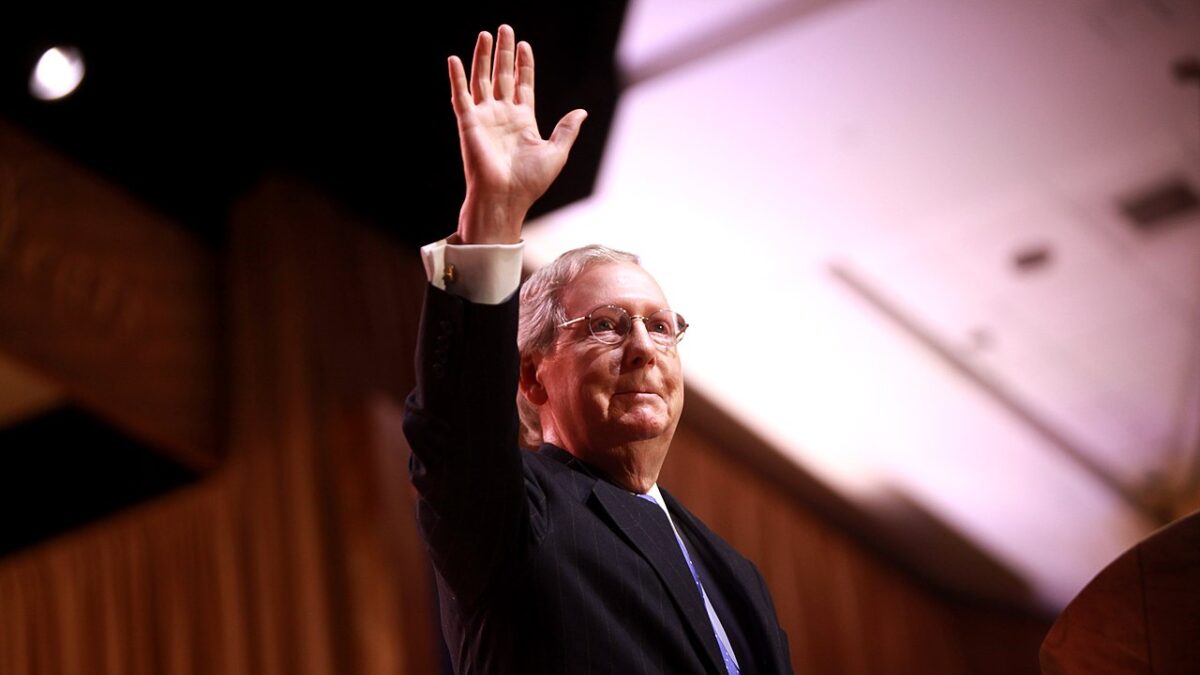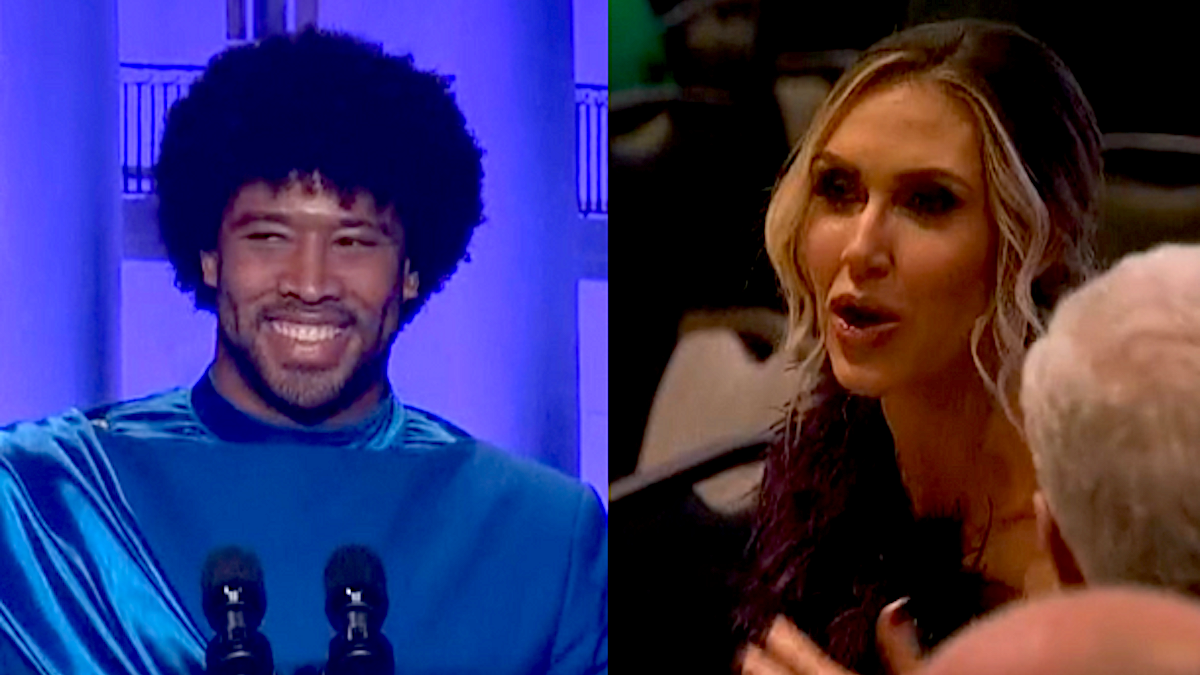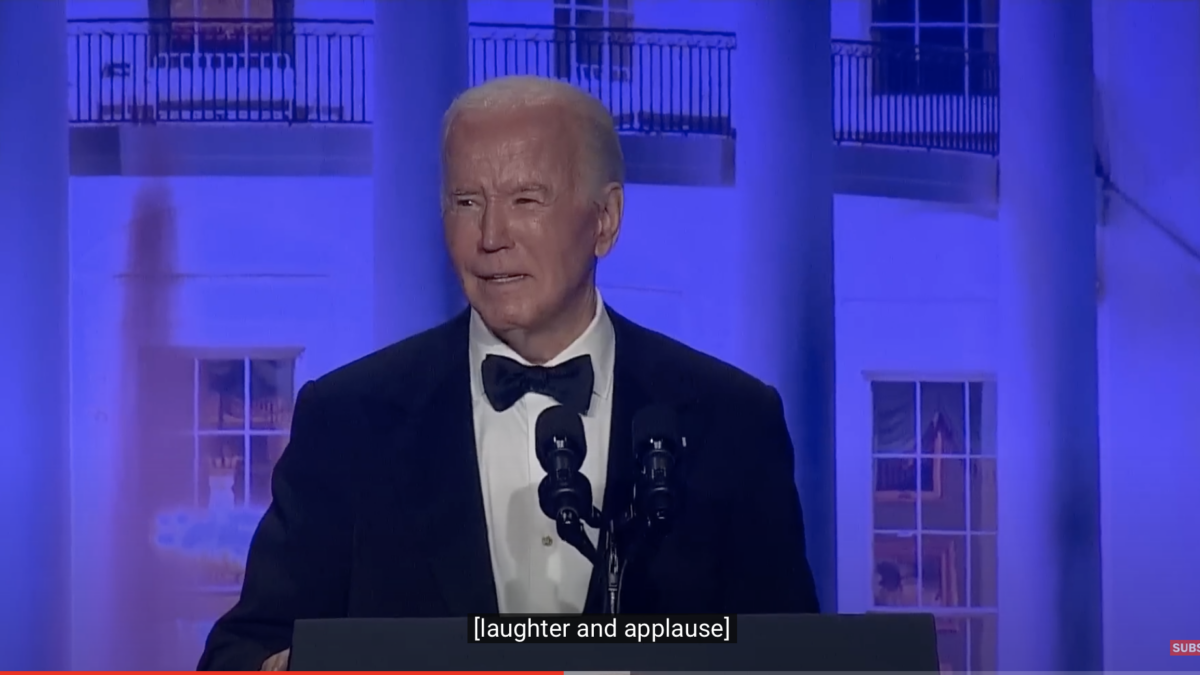Mitch McConnell and his friends are keen to paint the outgoing majority leader as the bookend of the Age of Reagan. Even some of his liberal opponents are happy to repeat the lazy mantra, if only to contrast gooey 1980s nostalgia with the populist conservatism of the new right.
They’d like to remind us how the Kentucky Republican was married on the Gipper’s birthday, but while it can feel nice to reminisce on a young man’s nerdy romance, any serious attempt to understand history’s longest-serving Senate leader needs to focus on the age in which he rose to power: those eight years of Republican rule in the early 2000s. A 42-year-old McConnell may have won his first Senate race at the height of the Reagan years, but by the time he won the mantle of minority leader, those days were gone. More than anything, Mitch McConnell was a Bush Republican.
He’s not alone, in either sense. A good number of the Bush-era alumni like to shroud their doomsaying about the new right in Reagan’s cowl. This makes sense. How hollow would it ring to hear the honest truth, that those Republican elites clashing so violently with the new right represent the Bush wing of the GOP so publicly rejected by their own voters? Few Americans of either party hold much nostalgia about the George W. Bush presidency, and former Rep. Liz Cheney’s headlong charge into obscurity doesn’t quite inspire imitators. Better to draw your authority from a deeper well.
“McConnell departure leaves GOP’s Reagan wing reeling,” the headline at Politico reads.
“Ronald Reagan’s wing of the party is moribund,” one Bloomberg columnist echoed, “and Trumpism has swept past a once formidable — and ruthless — political player.”
“His decision,” the AP reported, “punctuates a powerful ideological transition underway in the Republican Party, from Ronald Reagan’s brand of traditional conservatism and strong international alliances, to the fiery, often isolationist populism of former president Donald Trump.”
“It’s the end of the Reagan era,” an anonymous Senate staffer told The Hill. “And now the MAGA era.”
So who was Kentucky’s longest-serving representative? The man NPR says “long embraced Reagan’s conservatism”? When it was his turn in power, how did he use it?
Mitch McConnell won leadership of the Senate GOP in 2006 — just off three years of controlling the White House, Senate, and House of Representatives, which they used to tinker on business-friendly reforms, while failing to achieve a lasting effect.
The defining issues of the day were bailouts for Wall Street, the president’s promised amnesty for illegal immigrants, and the increasingly unpopular Iraq War. McConnell supported all three.
More contentious issues, such as George W. Bush’s proposed law enshrining marriage within the context of a family, sat on the back burner amid the president’s declining popularity. And that was just fine by McConnell, who preferred to punt society’s thornier problems to the executive and judiciary, freeing Republicans to pursue the more gentlemanly callings: blocking campaign finance reform and winning elections.
In line with this, he pursued a strategy of stacking the courts with libertarian, pro-business judges — a legacy he is given due credit for. The strategy, however, failed as a bulwark against Obamacare, attacks on the institution of marriage, and the undermining of the sexes themselves. While the Dobbs decision will forever earn praise for finally ending 50 years of ugly abortion precedent, the architect of the Supreme Court flinched in its face. He was both unprepared and unwilling to answer the moment, choosing instead to focus his energies on President Joe Biden’s economic record and foreign policy failures.
Within the Senate, McConnell often operated as a sort of third party. His knowledge of the institution and ability to deliver GOP votes on Democratic priorities gained him far greater power over outcomes than his minority status provided. While he could routinely wrangle a few Republicans to join Democrat majorities, his record of successfully cajoling Democrats into joining Republican majorities is virtually nonexistent. The result? He achieved his priorities, even while conservative priorities were neglected. In the storied “fusionist coalition” of defense hawks, tax cutters, and social conservatives, there was no doubt who was in charge — and who had no power at all. Sen. Tommy Tuberville, R-Ala., recently learned that the hard way.
While McConnell’s is a complicated legacy, and not one to simply write off, “Ronald Reagan’s brand of traditional conservatism” it was not. More than any youthful Ronald Reagan fandom, McConnell’s perspective on leadership was fully shaped by a life as an appropriator. His legacy epitomizes the Republican Party of the 2000s: corporate tax cuts, unfettered spending on defense and liberal programs, and the abandonment of any serious legislative efforts on cultural issues, from abortion to marriage to immigration.
It’s fitting that after four decades in the Senate, he hopes funding the war in Ukraine will cement his legacy. It’s priorities like these — and men like him and other Bush Republicans — who opened the door for the new right’s rebellion within the ranks.
When he retires, his records will likely be held at the McConnell Center at the University of Louisville. He earmarked the tax dollars to make it so.
But let’s not let that get in the way of our fond reminiscences.









